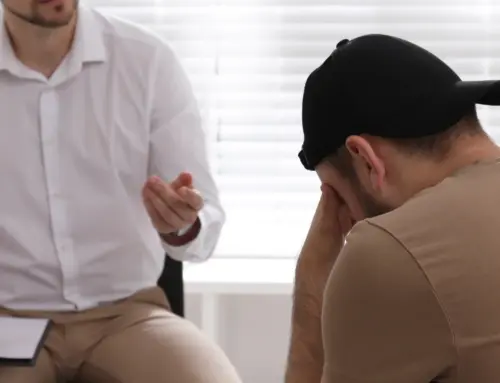A relapse isn’t usually a spur-of-the-moment thing. By the time someone relapses, she has probably been thinking about it and working up to it for a while. A relapse can happen at any time, although it does get less likely the longer you are sober. People are usually the most vulnerable early on but there is a bit of a danger zone in the six to 12 month area, when people start to feel a bit complacent and lose motivation. Wherever you are in recovery, there are some signs you might be heading for a relapse.
You stop going to meetings.
You might feel like you aren’t really getting anything out of meetings, like you’re too busy and have better things to do, or that you pretty much have it under control. Whatever your reasoning for not going, or going less often, you might just be trying to distance yourself from the people who can hold you accountable.
You’re getting complacent.
You’ve been doing great for 10 months or a year and you figure you’ve got this addiction thing beat. The memories of the bad times have faded and you aren’t feeling quite as motivated to do all the things you’ve been doing to stay sober. This is a dangerous time. Not only are you likely to slack off a bit on meetings, service, working the steps, exercise, and so on, but you may start taking foolish risks like spending time with people who are still using, or going to places where you might be tempted.
You find yourself romanticizing using.
Those bad memories of addiction have faded, but now you occasionally remember some of the good times. You start thinking that maybe the time you’ve spent sober is proof that you can drink or use responsibly now. Maybe you can get some of the good times back without any of the bad times. Of course, all of this is just wishful thinking. The good times and bad times are two sides of a coin.
You’re getting negative or cynical about recovery.
This is often a red flag for people at 12-step meetings. It’s sometimes called “stinking thinking.” Perhaps you feel like recovery is not what you expected, or that people who seem to be doing well in recovery are just phony. Pessimism can lead to depression, lack of motivation, and a general unwillingness to keep working. It also makes people not want to be around you, weakening your social support. Everyone has bad days, but if you notice you’re being consistently negative, or someone else mentions it, you might want to reevaluate your situation.
If you notice any of these warning signs, it may be time to adjust your plan of sobriety, or get back to doing what has worked before. Go to more meetings, talk to your sponsor, work the steps, talk to a therapist, pay attention to your lifestyle, talk to your therapist–whatever good things you’ve dropped from your life, it’s time to pick them up again. If necessary, play the tape to motivate yourself. Remember, vividly, why you wanted to get sober in the first place.
Located in downtown Midland, The Springboard Center’s mission is to offer programs and services to treat alcohol and drug addiction treatment using an evidence based curriculum, 12 step programs, diet, nutrition, exercise, emotional, mental and spiritual development for a long recovery. For more information, please call us at 432-620-0255 as we are open 24 hours a day, 7 days a week.




